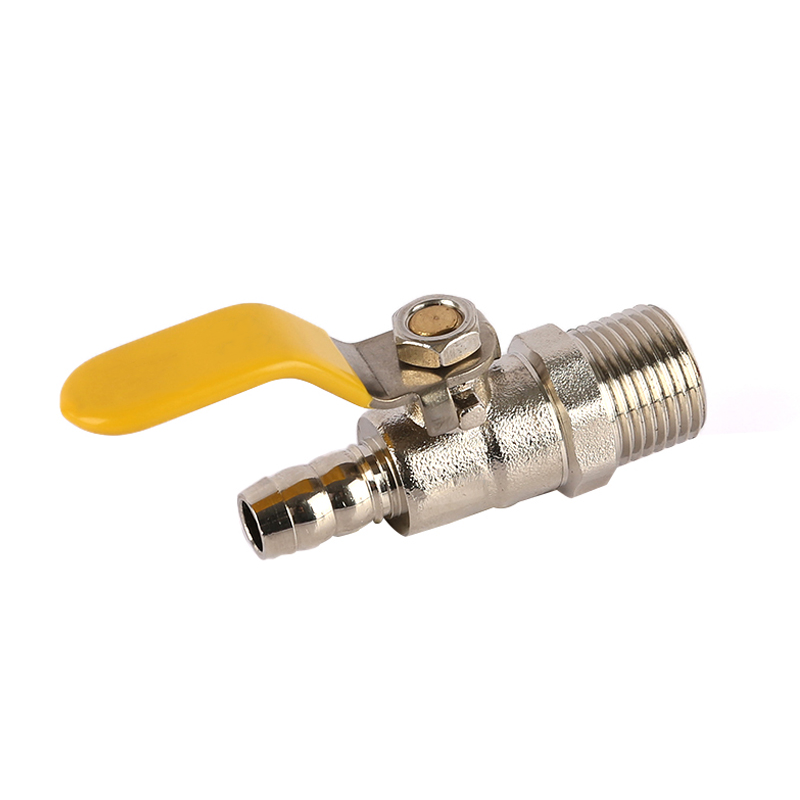Ball valves are indispensable components widely used in various industrial applications. They offer unique advantages that make them ideal for controlling the flow of liquids or gases. This article aims to delve into the numerous benefits of implementing ball valves in industrial settings. Throughout the discussion, the significance of ball valves will be highlighted, and their relevance to industrial applications will be emphasized to provide a comprehensive understanding of their advantages.
1. Enhanced Durability and Reliability:
Ball valves are recognized for their exceptional durability and high reliability compared to other valve types. The design incorporates a spherical ball with a hole in the center that serves as the flow passage. The simplicity of this design makes ball valves less prone to complications and wear. They are less susceptible to leakage and perform consistently without requiring frequent maintenance, making them suitable for demanding industrial applications.
2. Reparability:
Another advantage of utilizing ball valves in industrial applications is their reparability. In case of damage or malfunction, the valve can be easily repaired by replacing the damaged components. This feature ensures that downtime and maintenance costs are minimized, making ball valves a cost-effective and efficient choice for industries aiming to maximize their productivity.
3. Quick and Easy Operation:
Ball valves offer quick and smooth operation due to their quarter-turn mechanism. This ensures a rapid transition from the fully closed to fully open position, enabling instant control over the flow. The prompt response time is particularly advantageous in critical applications that require immediate shut-off or flow control.
4. Excellent Flow Control:
Ball valves provide excellent flow control capabilities, allowing for precise adjustments. By simply rotating the valve handle, the flow can be regulated in a gradual manner, promoting accuracy and efficiency within industrial processes. The ability to achieve precise control is vital in various applications, such as in chemical or petrochemical industries, where the flow rate must be maintained within stringent parameters.
5. Versatility:
Ball valves have remarkable versatility, making them suitable for a wide range of industrial applications. They can handle different types of media, including corrosive substances, slurries, and high-temperature fluids. Moreover, their ability to operate effectively under high pressures and temperatures them ideal for bad working conditions typically encountered in oil refineries, power plants, and pharmaceutical industries.
6. Minimal Pressure Drop:
Pressure drop refers to the reduction in pressure from the incoming flow to the outgoing flow. Ball valves possess a streamlined flow path due to the spherical shape of the ball, resulting in minimal pressure drop when compared to other valve types. This feature ensures better system efficiency and energy conservation, making ball valves the preferred choice in energy-intensive industrial sectors.
7. Bi-directional Flow Capability:
Ball valves are designed to provide bi-directional flow control. Unlike conventional valves, ball valves can operate both ways, allowing for flexibility in industrial applications where the flow direction may change. This feature eliminates the need for specific installation orientations and enhances convenience during system configuration.
8. Tight Shut-off:
Ball valves offer a tight shut-off when closed, providing an exceptional sealing mechanism. This capability prevents any leakage or backflow, ensuring safety and reliability in critical operations. In industries that handle hazardous, harmful, or valuable substances, the ability of ball valves to deliver a secure shut-off is particularly vital.
Conclusion:
In conclusion, ball valves bring numerous advantageous features to industrial applications. Their durability, reliability, reparability, ease of operation, excellent flow control, versatility, minimal pressure drop, bi-directional flow capability, and tight shut-off make them a preferred choice across several industries. Understanding these benefits allows businesses to select the appropriate valve for their specific operations, optimizing productivity, safety, and efficiency. With their notable advantages, ball valves undoubtedly play a pivotal role in meeting the demanding requirements of industrial applications.

 English
English русский
русский Deutsch
Deutsch












